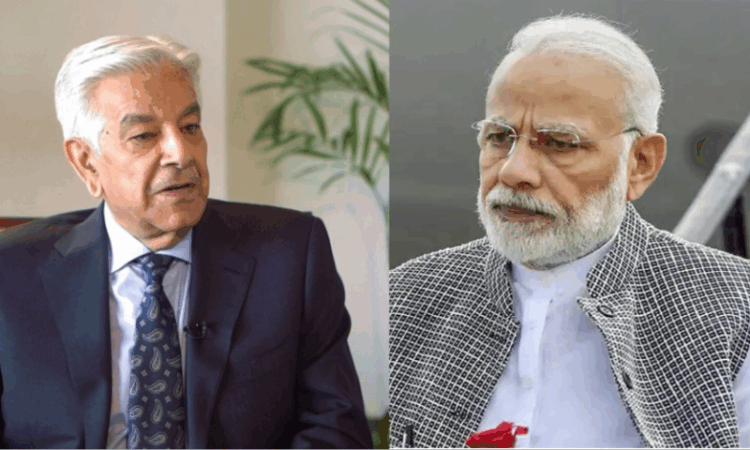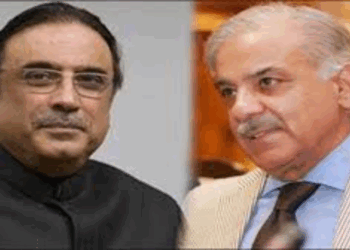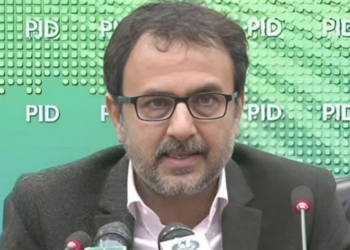Islamabad, May 13, 2025: Federal Defence Minister Khawaja Asif has said that Indian Prime Minister Narendra Modi is facing growing political isolation both domestically and internationally, declaring that “Modi’s days are numbered” and asserting that the final verdict lies with the Indian electorate.
Speaking to reporters in Islamabad, Asif outlined Pakistan’s position ahead of any prospective dialogue with India, emphasizing that talks must address three core issues: terrorism, the Kashmir dispute, and water conflicts.
“Terrorism will certainly be on the agenda, but so will Kashmir and India’s violations of the Indus Waters Treaty,” Asif stated. He reaffirmed Pakistan’s stance on counterterrorism, saying, “Pakistan has been a victim of terrorism for 25 years and continues to be unfairly blamed. Our sacrifices in the global war on terror must be recognised by the international community.”
He recalled Prime Minister Shehbaz Sharif’s earlier offer to investigate recent terror incidents and reiterated that Pakistan remains open to dialogue—provided its role in fighting terrorism is acknowledged.
On the Kashmir issue, Asif said it remains a central and unresolved conflict that must be addressed in any future negotiations. He also cautioned against the politicization of water resources, warning that any attempts to tamper with the Indus Waters Treaty would be seen as a provocation.
The minister accused India of sponsoring terrorism, citing alleged evidence uncovered in Canada and the United States. “India has long played the role of an international terrorist actor. These proofs must be presented in any future negotiations,” he said.
Commenting on the internal political turmoil in India, Asif claimed that Modi has lost control amid increasing dissent. “His recent speech was an attempt to contain the damage, but the situation has already gone beyond his grasp,” he remarked.
A full ceasefire between India and Pakistan was announced on May 10, bringing a temporary halt to days of escalating military exchanges that had pushed the two nuclear-armed neighbours to the brink of open conflict.
The announcement was initially made by U.S. President Donald Trump and later confirmed by Pakistan’s Prime Minister Shehbaz Sharif, Deputy Prime Minister Ishaq Dar, Indian External Affairs Minister S. Jaishankar, and U.S. Secretary of State Marco Rubio.
The escalation followed a deadly attack on April 22 in Pahalgam, Indian Illegally Occupied Jammu and Kashmir (IIOJK), which left 26 civilians dead. India blamed Pakistan-based actors without presenting evidence—a claim swiftly rejected by Islamabad. In retaliation, India closed the Wagah border, revoked visas, and unilaterally suspended the Indus Waters Treaty—moves Pakistan described as “acts of war.”
India then launched missile and drone attacks under Operation Sindoor, prompting a swift and forceful response from Pakistan. In retaliation, Pakistan initiated Operation Bunyan-un-Marsoos, claiming it had downed five Indian fighter jets—including Rafales—and intercepted 77 Israeli-made Harop drones.
After urgent diplomatic intervention led by Washington, both sides agreed to halt military operations across land, air, and sea. However, only hours after the ceasefire was declared, fresh skirmishes were reported along the Line of Control. Explosions were heard in Srinagar, and officials on both sides reported brief exchanges of fire, casting doubt over the truce’s durability.
Pakistan’s Foreign Office reaffirmed its commitment to the ceasefire, while accusing India of violating its terms. Director General ISPR Lt Gen Ahmed Sharif Chaudhry clarified that Pakistan had not requested the ceasefire, and that the offer had come from India following Pakistan’s retaliatory strikes.
“War between two nuclear states is inconceivable and an absurdity,” Chaudhry said, while dismissing viral claims about Indian pilots being captured as misinformation.
Chaudhry described Operation Bunyan-un-Marsoos as a unified national response to Indian aggression and reaffirmed that Pakistan had met its strategic objectives through a proportional and resolute counteroffensive.







